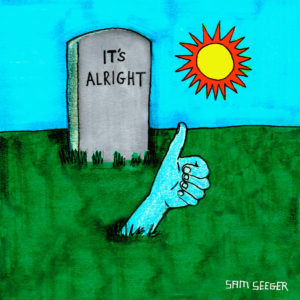 I’m a bit of a grammar nazi. If you type “alot” instead of “a lot,” I despise you. If you type “prolly” instead of “probably,” I want to order up a short school bus for you to go to school in. And if you say “for John and I” instead of “for John and me,” I want to pull my hair out. After all, if you take out the “John,” would you say “for I” or “for me”?
I’m a bit of a grammar nazi. If you type “alot” instead of “a lot,” I despise you. If you type “prolly” instead of “probably,” I want to order up a short school bus for you to go to school in. And if you say “for John and I” instead of “for John and me,” I want to pull my hair out. After all, if you take out the “John,” would you say “for I” or “for me”?
But there’s one rule that grammar nazis froth at the mouth over that I reject categorically, and that’s insisting that it’s always “all right” and never “alright.”
 There’s simply no justification for sticking belligerently to this rule. English has all sorts of compound words where “all XXX” got turned into “alXXX,” and everyone, including grammar nazis, are just fine with that.
There’s simply no justification for sticking belligerently to this rule. English has all sorts of compound words where “all XXX” got turned into “alXXX,” and everyone, including grammar nazis, are just fine with that.
all ways => always
all be it => albeit
all most => almost
all ready =>already
all though => although
all mighty => almighty
all together => altogether
The pattern is well estabished, and “all right => alright” fits right into it. So what’s with the bigoted prejudice against “alright”?
But that’s only the beginning of the argument for “alright.” Language is a dynamic thing. Dictionaries and grammar are not carved-in-stone commandments from on high. They’re attempts at playing catch-up with volatile, ever-changing usage of language that creative humans are always playing around with. Just because something used to be that way doesn’t mean it can’t change.
 And change it will. Change it has. Mark Twain apparently used “alright” way back around 1865. It’s been around a long time, but still gets disrespected like a bastard child.
And change it will. Change it has. Mark Twain apparently used “alright” way back around 1865. It’s been around a long time, but still gets disrespected like a bastard child.
Furthermore there is logic to back up the change, unlike abominations like “alot.” Not a lot of words where the article got mooshed with the noun. You never see “thecow” or “anonion.” And even if you did, there’d be zero difference in meaning between “the cow” and “thecow.”
 But “all right” and “alright” do have a significant difference in meaning, which justifies having two separate spellings for them. Two example sentences illustrate this:
But “all right” and “alright” do have a significant difference in meaning, which justifies having two separate spellings for them. Two example sentences illustrate this:
“I got an A in the test. I got them all right.”
“I got a B in the test. I did alright.”
In the first sentence, “all right” means “everything is as it should be.” It’s a strong, absolute statement.
In the second sentence, “alright” means the results are acceptable, passable, okay, but not necessarily “all right.” It’s a “meh” statement.
 Grammar nazis, you are not all right on this. “Alright” is perfectly alright to use. Even some grammar nazis acknowledge that “alright” is likely to become standardized some day, although (not “all though”) they’ll fight it tooth and nail along (not “a long”) the way.
Grammar nazis, you are not all right on this. “Alright” is perfectly alright to use. Even some grammar nazis acknowledge that “alright” is likely to become standardized some day, although (not “all though”) they’ll fight it tooth and nail along (not “a long”) the way.
But for me, I’m on a mission to help its standardization as much as I can. I self-publish, and I insist on spelling it “alright” unless I really mean “everything is exactly right.” I’m sure there will be those who chide me for being ignorant and I should have hired a professional proofreader to fix those, but nuh-uh! I’m a man with a cause, and I will fight the bigotry of “all right” nazis to the bitter end!
Think I’m out of my mind? An authority no less than Merriam-Webster says essentially the same thing. But I must point out, since I love stroking my own ego, that I thought up these arguments long before I saw this article, which I only found today when I Googled the subject.
Makes me wonder if the people at Merriam-Webster read one of my rants and based the article on it.
(Ego duly stroked.)